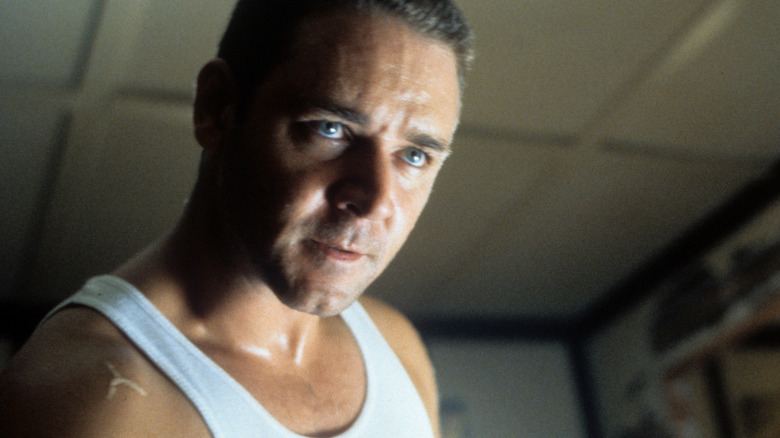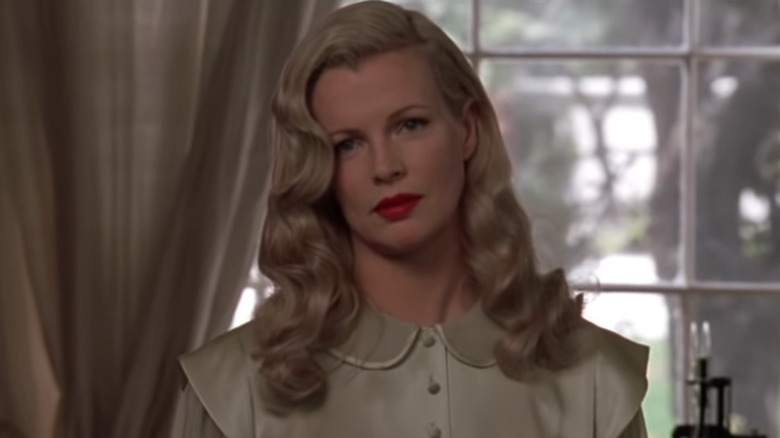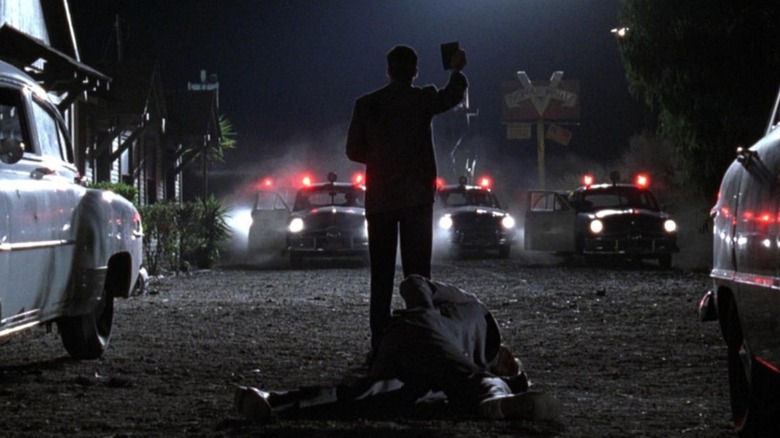Why That Proposed L.A. Confidential Sequel Never Happened
Curtis Hanson's 1997 film "L.A. Confidential" is a sprawling, multifaceted thriller that still stands as one of the best American movies of its decade (and as a stunning neo-noir to boot). Based on the novel by James Ellroy, the film follows a set of LAPD officers in 1953 with complex, intersecting motives who combine forces to investigate an unsolved murder. In typical noir fashion, they discover a web of corruption that gets messier the deeper in they get.
While the story itself is full of twist and turns, it turns out the film's own history is also full of some surprises. The Academy Award-winning film had, at one point, the potential for a direct sequel that would involve the film's characters Edmund Exley (Guy Pearce) and Wendell "Bud" White (Russell Crowe), along with Chadwick Boseman playing a young officer. It would even have been an original sequel, rather than an adaptation of another of Ellroy's novels. But as you know, it never got made. Here's why that hopeful sequel never happened.
A Touch of Sequel
"L.A. Confidential" screenwriter Brian Helgeland approached Warner Bros. with an original sequel idea, one developed with Ellroy that follows the film's story some time later (instead of adapting another of Ellroy's novels). What's more, the pitch was made when Crowe and Pearce were already reportedly on board, alongside the formidable young talent of Chadwick Boseman as a newer member of the LAPD. With the talented cast and writers assembled, what could go wrong?
If the great history of noir and neo-noir films has taught us anything, it's that we should be suspicious of anything resembling a "sure thing." To quote Helgeland, "We worked the whole thing out," but nevertheless "It was great. And Warners passed." Now, in a new interview, Guy Pearce discussed the sequel that could have been and divulges a possible reason why it never was.
An Idea Out of the Past
In a Total Film interview, Pearce talked about his initial discussions with director Curtis Hanson and James Ellroy about "some sort of follow-up." He explains what went down:
"There was talk about whether we'd create something new, basically ten years on. 1963. It never went anywhere. It was just proving to be too expensive or too difficult. [...] there were some rumblings in the camp which went away. It's unfortunate. I was excited at the prospect that we could revisit these characters one day."
The sequel seemed too costly to materialize despite the pedigree of the property and the talent on board, and we were robbed of both a potential sequel and a chance to see Chadwick Boseman join the film's world. Fans of the genre are accustomed to stories with sad endings, so maybe it's appropriate that a sequel to one of the great neo-noirs was not meant to be. To selectively paraphrase an entirely different and unrelated noir, "Forget it, Jake, it's Chinatown Hollywood."


